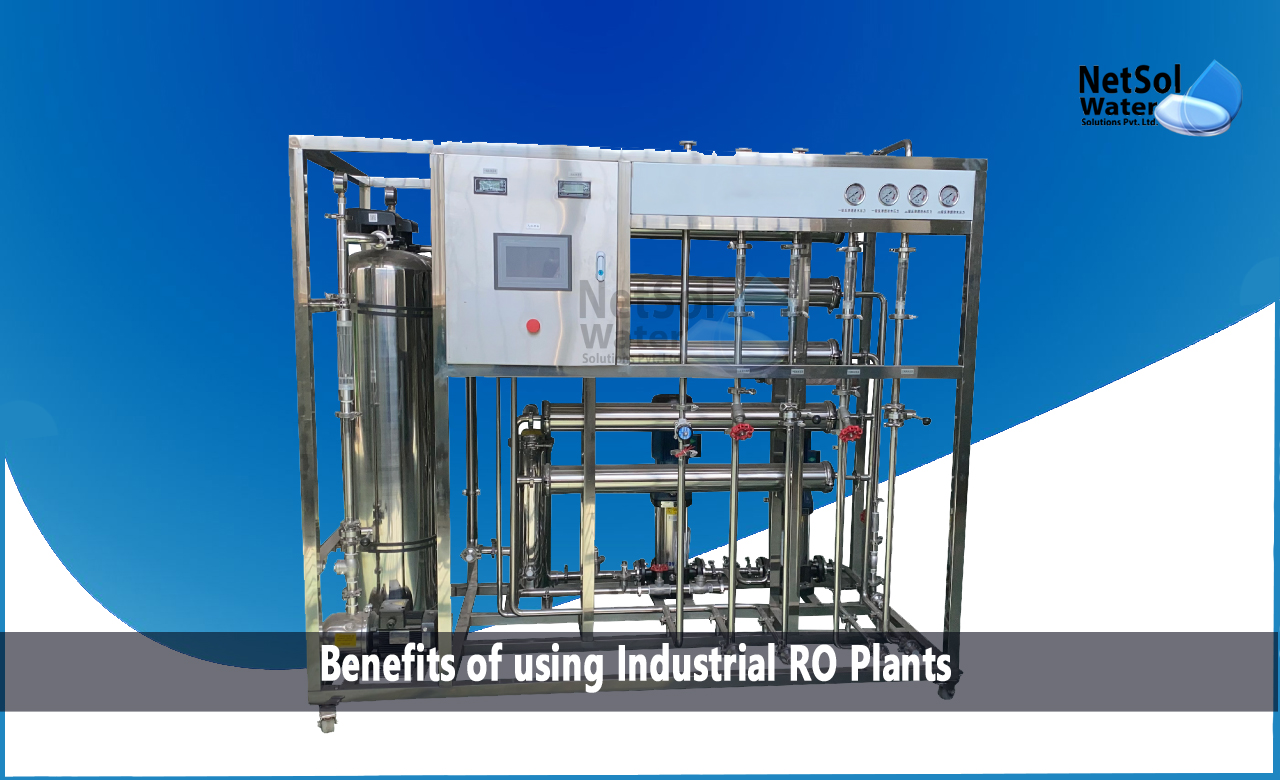Membrane technologies are being utilized more frequently to treat water and wastewater, as water quality regulations get stricter in India.
Industrial RO Plants are a form of water filtration system that uses filters and membranes, to help with the filtration process including activated carbon filters, cartridge filters, and multigrade filters. Its primary purpose is to provide the advantages that you obtain after installing a reverse osmosis system at your location.
It is essential to comprehend reverse osmosis' benefits for industrial processes, and why it is one of the greatest water filtration systems highlighting in particular, the benefits in terms of upkeep, affordability, health, and safety.
What are the benefits of using industrial RO plants in human life?
- Provides purified water: Industrial RO systems transform toxic and chemically laden water into purified and clean water. It eliminates the bacteria and germs that cause chronic illnesses and other health problems. It purges water of all ions, minerals, lead, organic debris, and other pollutants that, if left untreated, could be harmful.
- Improves water usage: Water is used more frequently as a result of industrial RO plants' water purification. Water that has been purified can be reused for many purposes in industries.
What are the environmental advantages of using industrial RO Plants?
One of the main environmental benefits of using an Industrial RO Plant is less hazardous effluent. This is because no hazardous chemicals are needed to produce the permeate (pure water).
Reverse osmosis is one of the greenest processes for handling industrial wastewater. Another advantage of RO for the environment is the capture and correct disposal of impurities, inside the primary water source. This results in the discharge of dangerous chemically saturated water, to the effluent or drain without any harmful effect.
With our cutting-edge membrane design, contaminants from the water feed are removed without the need of chemicals, resins, or ion exchange beds.
Concentrated contaminants from a RO system can subsequently be discharged directly into the drain, without the need for an extra, pricey treatment step.
What are the cost advantages of using Industrial RO Plants?
Reverse osmosis and membrane component costs are going down, but acid and caustic solution costs are still going up.
The primary cost of reverse osmosis systems is electricity. Modern water filtration systems are less energy-intensive, which lowers their operating expenses.
An Industrial RO system can be incorporated into the procedure, and the water can be fed either directly into the production line, or to a holding tank for storage before use as required. An Industrial RO system can handle wastewater streams, which lowers disposal costs by reusing the water during the process.
What are the benefits of using Industrial RO Plants in terms of health and safety?
One of the main benefits for health and safety is that no hazardous chemicals are employed in a reverse osmosis system, to produce high-quality water.
What do we offer?
Specialized water and wastewater management is necessary because water and wastewater composition varies. Every project is unique, and the professionals at Netsol Water will help you choose the appropriate method for treating your water.
We also combine cutting-edge technology with our years of experience, to handle the most challenging water treatment or wastewater treatment requirements of a wide range of clients, including small enterprises, corporations, regional government agencies, as well as industries.
For any further information or to make a purchase, please contact us at +91-9650608473 or enquiry@netsolwater.com



